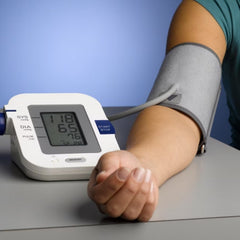What Time Is Considered Staying Up Late? Many People Get It Wrong
Table of Contents:
Nowadays, many people have the habit of staying up late—whether it's binge-watching shows, playing games, or scrolling through videos. Before they know it, it’s already late at night. People who go to bed at 12 AM or 1 AM and wake up at 8 AM—does that count as staying up late? So, what time is considered "staying up late"? Research shows: it's not 11 PM, and it's not 12 AM either. Many people have it wrong!

What Time is Considered Staying Up Late?
What’s the difference between people who go to bed at 10 PM every night and those who go to bed at 11 PM or 12 AM? A 2021 study conducted by the National Key Laboratory of Cardiovascular Diseases at the Fuwai Hospital of the Chinese Academy of Medical Sciences and The Chinese University of Hong Kong, involving over 136,000 middle-aged and older adults across 26 countries, found that anyone who goes to bed after 10 PM can be considered a late sleeper. People who stay up late or don’t get enough sleep are more likely to become obese and develop a larger waist circumference. Moreover, taking naps during the day doesn't mitigate these risks.
The study included 136,000 participants aged between 35 and 70, with an average age of 51. Based on their regular bedtimes, they were divided into five groups:
- Group 1: Sleep between 6 AM and 8 PM
- Group 2: Sleep between 8 PM and 10 PM
- Group 3: Sleep between 10 PM and 12 AM
- Group 4: Sleep between 12 AM and 2 AM
- Group 5: Sleep between 2 AM and 6 AM
The research showed that compared to those who went to bed between 8 PM and 10 PM, those who went to bed after 10 PM had a 20% increased risk of obesity (measured by BMI) and abdominal obesity (measured by waist circumference). Specifically, those who went to bed after 2 AM had a 35% increased risk of obesity and a 38% higher risk of abdominal obesity.
Additionally, the study confirmed that sleeping less than 5 hours a night is considered severe sleep deprivation, which increases the risk of obesity by 27%. Even taking a nap cannot compensate for the damage caused by insufficient nighttime sleep.
In other words, going to bed before 10 PM can significantly reduce the risk of obesity. So if you're going to bed after 10 PM, you are indeed staying up late! And perhaps your weight gain is not due to overeating, but because you're staying up too late!
What Are the Benefits of Going to Bed at 10 PM?
More Sleep—Prevents Cancer and Reduces Inflammation
The most obvious benefit of going to bed at 10 PM is getting more sleep—at least 1-2 hours more than usual. People who sleep too little tend to feel drowsy, dizzy, and sluggish. But beyond these surface-level symptoms, the more frightening impact lies in the "invisible" damage.
A 2023 study published in the scientific journal *Cell* found that sleep deprivation can trigger a systemic inflammatory response. It increases the production of prostaglandin D2 in the brain and disrupts the blood-brain barrier, leading to a cytokine storm in the body.
This chronic inflammation can elevate the level of C-reactive protein (CRP), a non-specific marker of inflammation, which is linked to cardiovascular diseases, strokes, cancer, and depression. The researchers speculated that this cytokine storm results in the excessive release of pro-inflammatory cytokines, which can lead to organ damage.
Wake Up Earlier and Say Goodbye to Negative Emotions
"Feeling down, not interested in anything" or "Feeling irritable no matter what I see"—these are common emotions for many people today, and they could be linked to irregular sleep patterns. A study published in *JAMA Psychiatry* in 2021 by researchers from MIT and Harvard University found that if you adjust your routine by going to bed and waking up just 1 hour earlier each day, your risk of severe depression decreases by 23%.
The study analyzed data from nearly 840,000 adults, whose average sleep time was 11 PM to 6 AM, with a sleep midpoint of around 3 AM. The researchers found that shifting the "sleep midpoint" earlier by just 1 hour can reduce the risk of severe depression by 23%.
In other words, adjusting your sleep schedule—such as from 11 PM to 7 AM to 10 PM to 6 AM—can significantly reduce the risk of depression, and help alleviate negative emotions and moods.
Eat Breakfast Earlier—Anti-aging and Disease Prevention
A study published in the *Food & Function* journal in June 2024 found that eating breakfast too late accelerates aging. People who eat breakfast later tend to have a higher biological age and show signs of accelerated aging.
The study involved 16,531 participants with an average age of 46.5 years, and it measured their "phenotypic age" to reflect their actual biological age. The researchers found that people who ate breakfast later experienced more biological aging. Specifically, those who ate their first meal at 10 AM had a biological age 25% older than those who ate breakfast at 6 AM.
Moreover, eating breakfast 1 hour earlier can also reduce the risk of diabetes! A 2023 study published in the *International Journal of Epidemiology* involving over 100,000 participants found that people who eat breakfast after 9 AM have a 59% higher risk of developing type 2 diabetes compared to those who eat before 8 AM.
Researchers divided the participants into three groups based on their breakfast times:
- Group 1: Breakfast before 8 AM (44.77%)
- Group 2: Breakfast between 8 and 9 AM (35.78%)
- Group 3: Breakfast after 9 AM (19.45%)
Compared to those who had breakfast before 8 AM, participants who ate breakfast after 9 AM had a significantly higher risk of type 2 diabetes. The researchers explained that skipping or delaying breakfast disrupts blood sugar control, lipid metabolism, and insulin levels.





